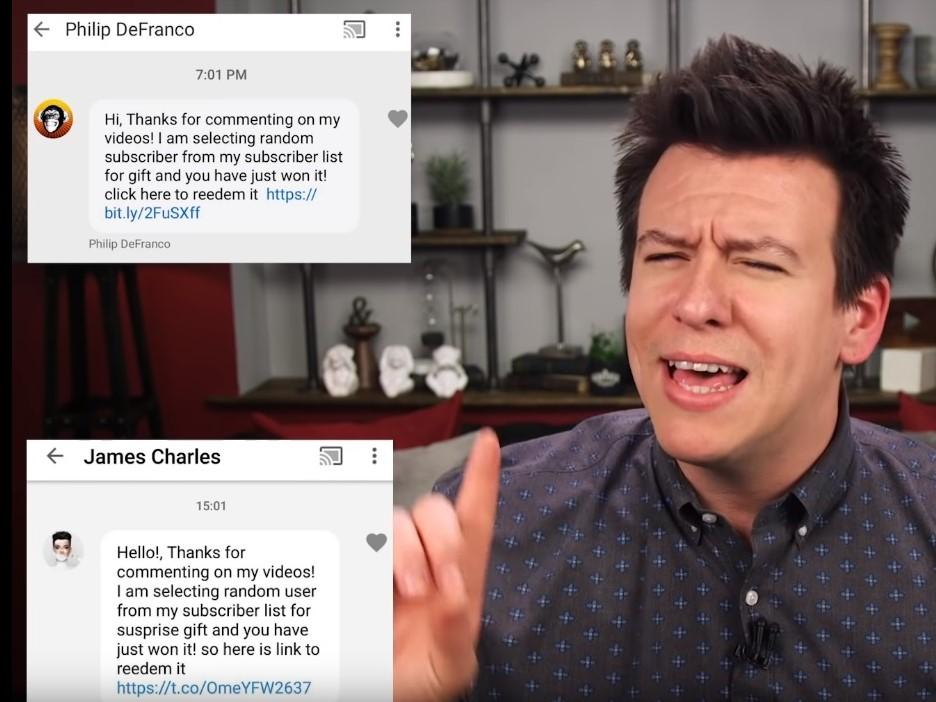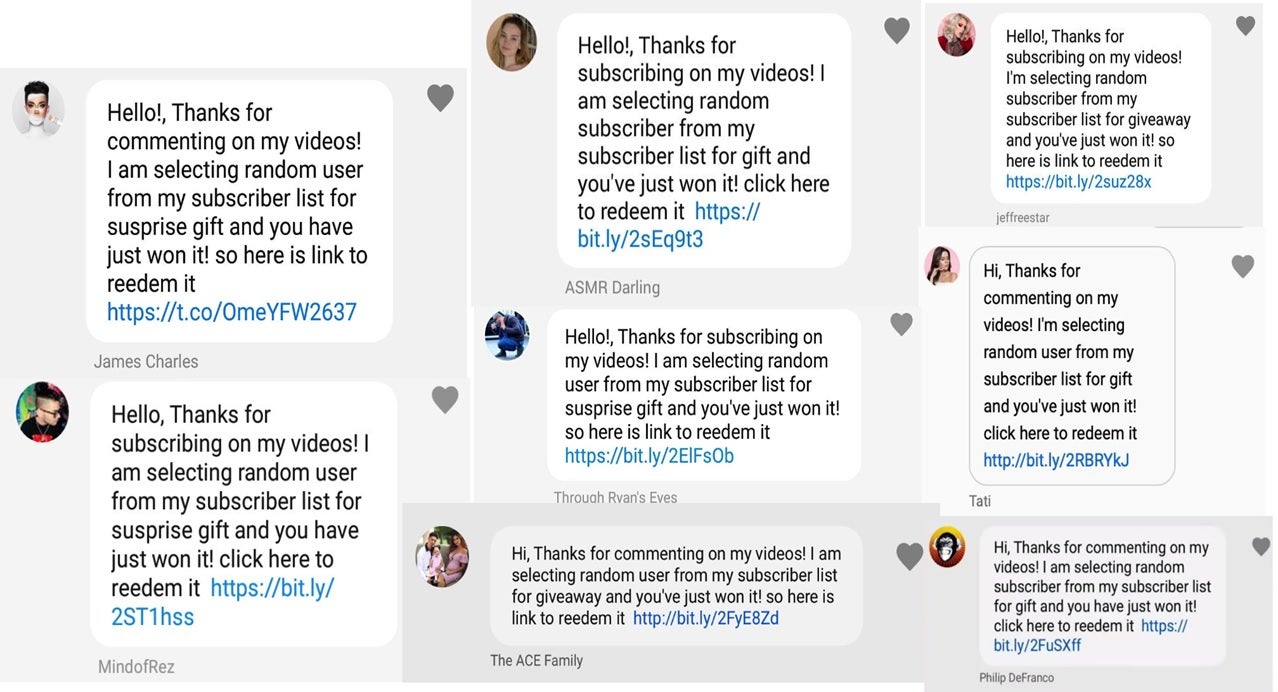The Independent's journalism is supported by our readers. When you purchase through links on our site, we may earn commission.
YouTube impersonation scam has tricked 70,000 people, study reveals
Popular YouTubers like James Charles and Philip DeFranco have been caught up in the campaign
Your support helps us to tell the story
From reproductive rights to climate change to Big Tech, The Independent is on the ground when the story is developing. Whether it's investigating the financials of Elon Musk's pro-Trump PAC or producing our latest documentary, 'The A Word', which shines a light on the American women fighting for reproductive rights, we know how important it is to parse out the facts from the messaging.
At such a critical moment in US history, we need reporters on the ground. Your donation allows us to keep sending journalists to speak to both sides of the story.
The Independent is trusted by Americans across the entire political spectrum. And unlike many other quality news outlets, we choose not to lock Americans out of our reporting and analysis with paywalls. We believe quality journalism should be available to everyone, paid for by those who can afford it.
Your support makes all the difference.A YouTube scam that lures users to click on malicious links by impersonating popular YouTubers has affected more than 70,000 people, new research has revealed.
Cyber security firm RiskIQ mapped the multi-year campaign, revealing how scammers mimicked seven prominent YouTube channels in an attempt to trick their millions of followers into hading over their personal details.
YouTube stars that have been impersonated include news commentator Philip DeFranco and makeup vlogger James Charles.
Scammers impersonate the YouTubers by adopting their names and profile pictures, but their accounts usually have no content. A typical message claims to offer the recipiant has been selected to win a prize.
One that appears to come from YouTuber James Charles states: “Hello! Thanks for commenting on my videos! I am selecting random user from my subscriber list for surprise gift and you have just won it! So here is a link to redeem it.”
The scammers use the promise of a prize to lure potential targets, often using sought-after items like Apple iPhones or Google Play gift cards.
By selecting a prize, the victims are in fact clicking on a referral link that takes them to a survey website that collects their personal information for the purpose of monetising their data.
“Once the visitors fill out the surveys, the organizations that collect this personal information give the scammers a flat-rate kick-back. Even if the kick-backs are tiny, these scammers fool enough users to finance their campaigns and then some,” RiskIQ researchers wrote in a report detailing the scams.
“The current YouTuber impersonation campaign is just one of the latest tricks they’re using to drive traffic. Over the years, they’ve employed many other tactics as well, claiming countless victims along the way.”

Some of those caught up in the campaign have recently taken to YouTube to warn their subscribers of the risks involved.
“If you have gotten a message from me or any other creator on YouTube... that is not from me, that is not from any of these other creators, that is very likely someone trying to scam you,” Mr DeFranco said in one video.

YouTube responded to Mr DeFranco’s video, stating on Twitter that it is aware of the issue and is planning an update to prevent it from happening in the future.
“Thanks for reporting on this spam issue! We’re in the process of implementing additional measures to prevent impersonation like this,” YouTube said. ”In the meantime, your subs can protect themselves by blocking any account that is spamming them.”
The Google-owned firm provided a link to a site that allows people to block individual user accounts.

Join our commenting forum
Join thought-provoking conversations, follow other Independent readers and see their replies
Comments